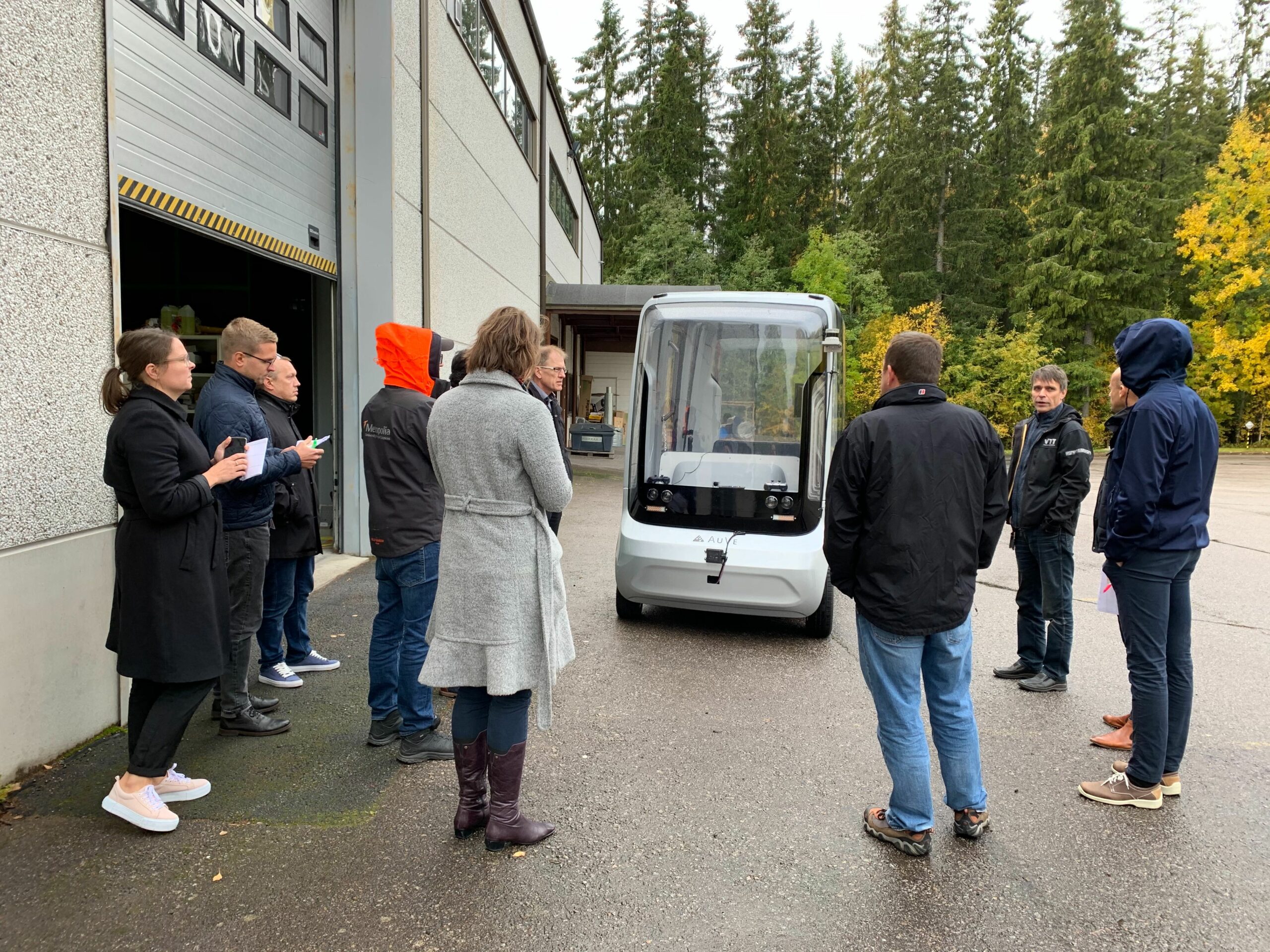Fleetonomy, VTT and Nodeon combined forces to have their fleet of self-driving shuttles developed and tested in the FABULOS project. They all have a long history of developing autonomous mobility systems and are looking forward to the next step of the project: getting their solution tested on open roads next year.
The four consortia awarded with contracts in the second phase of the pre-commercial procurement have been testing the prototypes in closed environments during the autumn of 2019. From February 2020 onwards, in the third phase of the FABULOS project, three out of the four solutions are to be tested in urban settings within mixed traffic.
Business Development Manager Dan Davies from Fleetonomy talks about their experiences in the FABULOS project.
Tell us more about your cooperation in the consortium
“The FVF Consortium consists of three teams. Fleetonomy.ai is the project lead and ultimately responsible for the delivery of a successful prototype under Phase 2 funding through to live trials in Phase 3. Fleetonomy.ai is also responsible for operational fleet management of the autonomous vehicles through software and hardware integration to the vehicle itself. VTT is responsible for upgrading a prototype bus provided by AuVe Tech to retrospectively fit the right sensor hardware required for fully autonomous and remotely operated driving. Nodeon is the software partner focused on integration to existing traffic management systems and infrastructure, vehicle simulation and also the end user web app to enable passengers to book rides on the bus.”
What is the solution your consortium is offering?
“FVF is focused on developing, testing and ultimately delivering an autonomous ‘last mile’ public transport solution for passengers in Helsinki and other cities. The concept is based on an on-demand service whereby a passenger can use their smartphone to pre-book a ride from a specific bus stop location to their destination or, potentially, to arrive at the bus stop and then reserve a seat for last-minute trips. The service will be integrated into the local traffic and public transport infrastructure so the autonomous buses can navigate safely and demonstrate their value in the ecosystem.”
How does the future of autonomous traffic look like?
“We feel that the autonomous ecosystem is a very exciting place right now and Fleetonomy is in a very good position, along with the FVF consortium partners, of exploiting this. Our planned Phase 3 work will field live autonomous services during 2020 and from this we expect to learn a lot in terms of the technology but also public perceptions of such services. We believe in the near term we can have autonomous vehicles operating in mainstream traffic offering passengers options for their rides across the city environment.”
How do you feel about pre-commercial procurement as an innovation tool?
“It is much better for small, agile innovation team to be involved in pre-commercial procurement for two main reasons from our perspective. Firstly, it creates an even playing field where smaller teams can pitch innovation and find R&D funding for projects that might otherwise only be seen by larger organisations. Secondly, it provides the funding bodies and buying communities with an accurate view of what is actually feasible. If this is backed up by commercially relevant research to ensure there is a demand for the proposed services, it has a much stronger likelihood of being exploited rather than being an innovation for the sake of it.”
What is your goal in terms of the FABULOS project?
“Our primary goal is to win through to Phase 3 where we can then begin full field trials providing three autonomous buses in European cities. We will be able to continue the parallel research for cyber security of autonomous systems; systems and safety reviews and the commercial proof of market research that will be so important to exploiting the FVF technology by making it directly relevant to passengers in terms of planned routes, the operating model, the costs and so forth.”
Photo: Stephen Sutton / Fleetonomy
Further information

Renske Martijnse-Hartikka
#AiRMOUR #FABULOS
Mobile: +358 40 683 7979
renske.martijnse-hartikka(at)forumvirium.fi
Subscribe to our Newsletter
Smart solutions for cities, piloting for companies and collaboration possibilities for research institutions – you’ll be the first to know!
